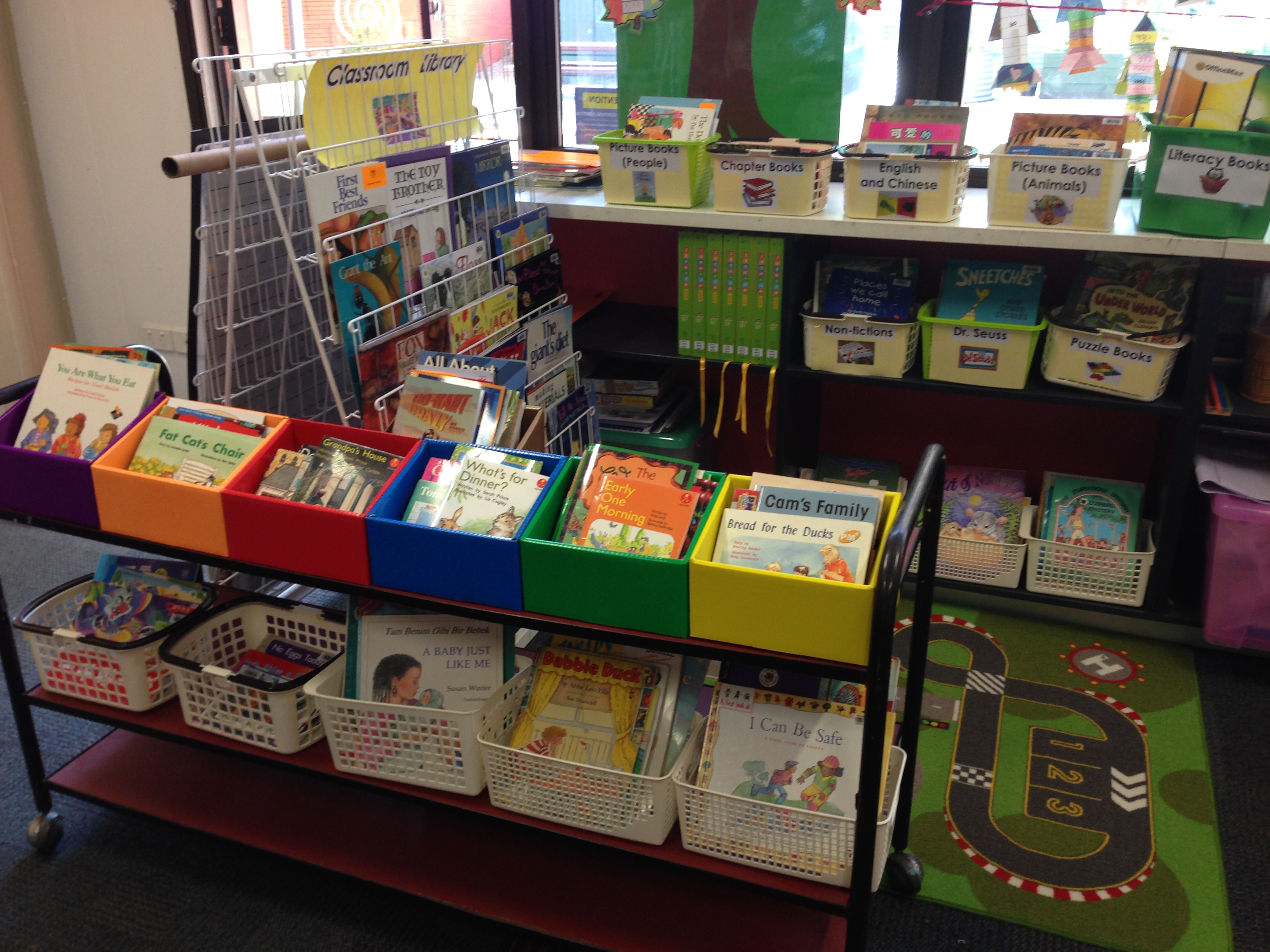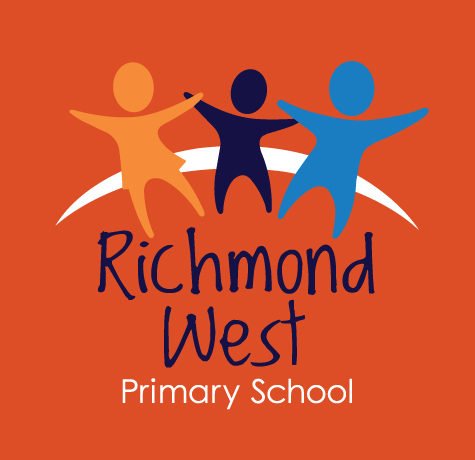Literacy
The primary years of school establish essential foundations of literacy that enables future literacy achievement.
The literacy program at Richmond West Primary School is focussed on developing competent, confident and independent, readers and writers through a Differentiated Curriculum Model. The Differentiated Curriculum Model means that classroom teachers assess students before a unit of instruction to determine the learning goals of each child. The teachers then work in their teaching team to plan the teaching focuses in response to student differences in readiness, interest and learning needs. To assist the teaching teams, a literacy coach is in place to support and guide planning, and curriculum delivery.
An English lesson will involve daily teaching of a range of literacy skills and knowledge through demonstration, guided practice and independent practice. The following is an outline of the features of this model and its application to reading and writing.

Reading
Mini Lesson
The teacher explicitly models a short focussed lesson on a comprehension strategy. The comprehension strategies identified as the most important strategies to improve students’ comprehension of text include: Prediction/Prior Knowledge, Questions and Questioning, Think-aloud, Text Structures and Features, Visualising and Summarisation.
Independent Reading
The students select and read a ‘Just Right’ book, (Just Right – able to be read with 90%+ accuracy) from the classroom library and practise the skills/knowledge demonstrated in the mini lesson, as well as previous lessons, and work on their individual reading goal. Students might use their Reading Journal to record their thinking.

Guided Reading
While the majority of the grade works independently, the teacher brings together a small group to explicitly teach effective reading strategies for fiction and/or information texts. The teacher selects teaching points based on readers’ needs, (identified through assessment and conferences with individual children), and sometimes assigns oral and/or written response tasks.
Individual Student Conferences
At the conclusion of the guided practice group, the teacher will conference with individual students who have been reading independently, engaging in a conversation with the student about their reading. The conference enables the teacher to understand each student’s reading progress and to help the individual student refine and extend his/her reading competence. The conference ends with an agreed reading goal the student will practice for the next few lessons or until achieved. The information gathered from the conferences informs the teaching for future lessons.
Share time
The group share is related to the mini-lesson. Group share reinforces students’ reading and extends their thinking as they benefit from the thoughts and ideas of others.

Writing
Mini Lesson
The teacher explicitly teaches a specific writing principle or procedure. These include:
Strategy and skill mini-lessons help students learn how to use the conventional rules of written language accurately and effectively.
Craft mini-lessons show students how to improve the quality of their writing over time through explicitly showing them what makes good writing.
Independent Writing
The students write for a designated time and apply new knowledge from the mini-lesson to individual writing. Students explore topics, draft, revise, edit and publish.
Guided Writing
While the majority of the grade works independently, the teacher brings together a small group for a lesson based on particular interests or needs. The teacher explicitly works with students to teach the writer’s craft, strategies and skills.
Individual Student Conferences

At the conclusion of the guided practice group, the teacher will conference with individual students who have been writing independently. The purpose of a writing conference is to help students help students extend their writing strategies, listen to students talk about their writing, evaluate students’ progress in writing and to assist students to set writing goals. The information gathered from the conferences informs the teaching for future writing lessons.
Share time
The group share is related to the mini-lesson. Group share reinforces students’ writing and extends their thinking as they benefit from the thoughts and ideas of others.
